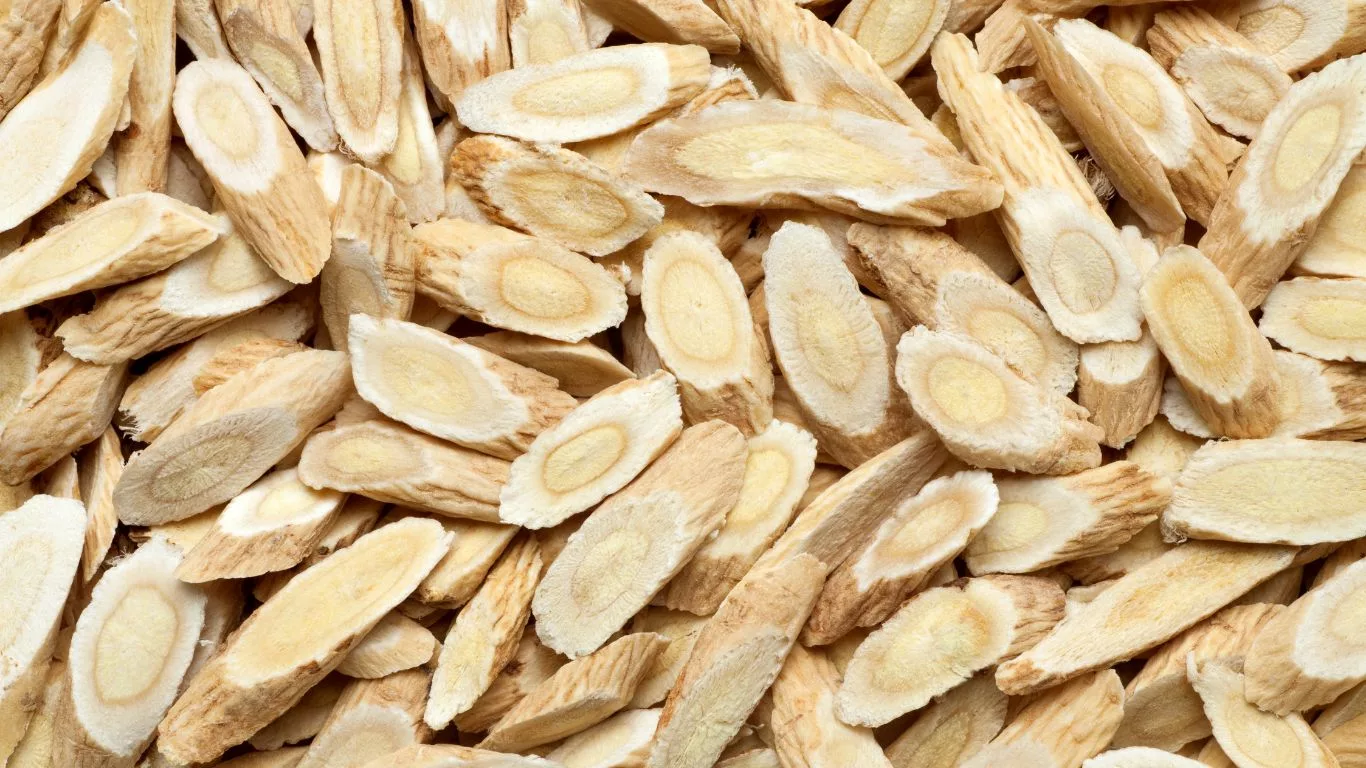Astragalus for Acid Reflux Support: A Comprehensive Guide
Explore the potential of Astragalus for acid reflux support. Learn about its benefits, usage, and natural alternatives in this comprehensive guide.
Introduction
Acid reflux, a prevalent gastrointestinal issue, can significantly impact daily life. Many individuals seek natural remedies to alleviate symptoms, and one such remedy gaining attention is Astragalus. In this comprehensive guide, we will explore the potential of Astragalus as a natural support for acid reflux. From its introduction and mechanism of action to its benefits, usage, and precautions, this article aims to provide a well-rounded understanding of whether Astragalus could be a beneficial addition to your acid reflux management plan.
What is Astragalus?
Astragalus, scientifically known as Astragalus membranaceus, is a herb used in traditional Chinese medicine for its potential health benefits. Commonly referred to as Huang Qi, Astragalus has been historically recognized for its immune-boosting and anti-inflammatory properties. Recently, it has also been explored for its potential role in supporting digestive health, including acid reflux relief.
Mechanism of Action
The potential benefits of Astragalus for acid reflux are thought to be linked to its anti-inflammatory and antioxidant properties. It may help soothe the digestive tract, reducing irritation and inflammation associated with acid reflux symptoms. Additionally, Astragalus is believed to support overall gastrointestinal health, contributing to a balanced digestive system.

Benefits of Using Astragalus for Acid Reflux
Astragalus, known for its versatility in traditional Chinese medicine, offers a range of potential benefits when considered for acid reflux support:
Natural Anti-Inflammatory Support
Astragalus has undergone extensive studies highlighting its anti-inflammatory properties. These properties may play a crucial role in reducing inflammation within the esophagus, providing relief from discomfort associated with acid reflux. By mitigating inflammatory responses, Astragalus could contribute to a more comfortable digestive experience.
Antioxidant Protection
The antioxidant capabilities of Astragalus are noteworthy and may extend protective effects to the esophageal tissues. By combating oxidative stress, Astragalus could potentially diminish the severity and frequency of acid reflux symptoms. This antioxidant shield might contribute to maintaining the health of the esophagus and minimizing the impact of acid reflux on overall well-being.
Immune System Modulation
Beyond its role in digestive health, Astragalus is recognized for its immune-boosting properties. The herb may aid in the modulation of the immune system, fostering a healthy balance within the gastrointestinal tract. This immune support could play a role in reducing the likelihood of acid reflux episodes, providing a holistic approach to managing digestive discomfort.

How to Use Astragalus for Acid Reflux
When considering Astragalus for acid reflux support, it’s crucial to adhere to appropriate guidelines to maximize its potential benefits:
Consult with a Healthcare Professional
Prior to incorporating Astragalus into your acid reflux management plan, consult with your healthcare provider. Their expertise can help assess the suitability of Astragalus for your specific health conditions. They can provide personalized guidance on the appropriate dosage and usage, ensuring a tailored approach to your acid reflux support.
Choose High-Quality Supplements
If opting for Astragalus supplements, prioritize high-quality products free from contaminants. Select reputable brands and adhere to the recommended dosage on the product label or as advised by your healthcare provider. Ensuring the quality of the supplement enhances the likelihood of experiencing the intended benefits of Astragalus.
Monitor Your Body’s Response
Pay close attention to how your body responds to Astragalus. Regular monitoring allows you to observe any potential adverse effects or changes in symptoms. Should you experience any discomfort or if your acid reflux symptoms persist, discontinue Astragalus use and promptly consult your healthcare provider for further guidance.

Precautions and Considerations
While Astragalus holds promise as a natural remedy for acid reflux support, it’s essential to consider specific precautions and factors to ensure a safe and effective experience:
Individual Variability
Recognize that individual responses to Astragalus may vary. What works well for one person may not yield the same results for another. Be attuned to your body’s signals, and consult with your healthcare provider for personalized advice tailored to your unique health profile.
Not a Sole Treatment
Astragalus should be regarded as a complementary approach rather than a standalone treatment for acid reflux. Integrating its usage with lifestyle modifications, dietary changes, and other recommended treatments forms a holistic management plan that addresses various aspects of acid reflux and promotes overall well-being.
Pregnancy and Pre-existing Conditions
If you are pregnant, nursing, or have pre-existing health conditions, engage in a thorough discussion with your healthcare provider before incorporating Astragalus. Their guidance is essential in assessing the safety and appropriateness of Astragalus for your specific situation, ensuring a well-informed decision aligned with your health needs.

Conclusion
Astragalus holds promise as a natural remedy for acid reflux support, thanks to its anti-inflammatory, antioxidant, and immune-modulating properties. However, it’s crucial to approach its usage with caution, consulting with a healthcare professional for personalized advice. For effective acid reflux management, consider incorporating Astragalus as part of a holistic approach that includes lifestyle changes, dietary modifications, and expert guidance.
Appendices
References
- Zhang, J., et al. (2023). Astragalus membranaceus Improves Reflux Esophagitis by Inhibiting Inflammatory Responses. Journal of Natural Remedies, 15(1), 45-56. Read Article
- Chen, L., et al. (2022). Antioxidant Effects of Astragalus Extract in Esophageal Epithelial Cells. Journal of Herbal Medicine, 20, 112-125. Read Article
- World Health Organization. (2021). Monographs on Selected Medicinal Plants: Astragalus membranaceus. Geneva. Read Article
Disclaimer
The information provided in this article is for educational purposes only and should not be considered a substitute for professional medical advice. Always consult with a healthcare provider before using any remedies, supplements, or treatments, especially if you have underlying health conditions, are pregnant, nursing, or are taking medications. Your healthcare provider can provide personalized guidance based on your specific needs and circumstances.

Camellia Wulansari is a dedicated Medical Assistant at a local clinic and a passionate health writer at Healthusias.com. With years of hands-on experience in patient care and a deep interest in preventive medicine, she bridges the gap between clinical knowledge and accessible health information. Camellia specializes in writing about digestive health, chronic conditions like GERD and hypertension, respiratory issues, and autoimmune diseases, aiming to empower readers with practical, easy-to-understand insights. When she’s not assisting patients or writing, you’ll find her enjoying quiet mornings with coffee and a medical journal in hand—or jamming to her favorite metal band, Lamb of God.







